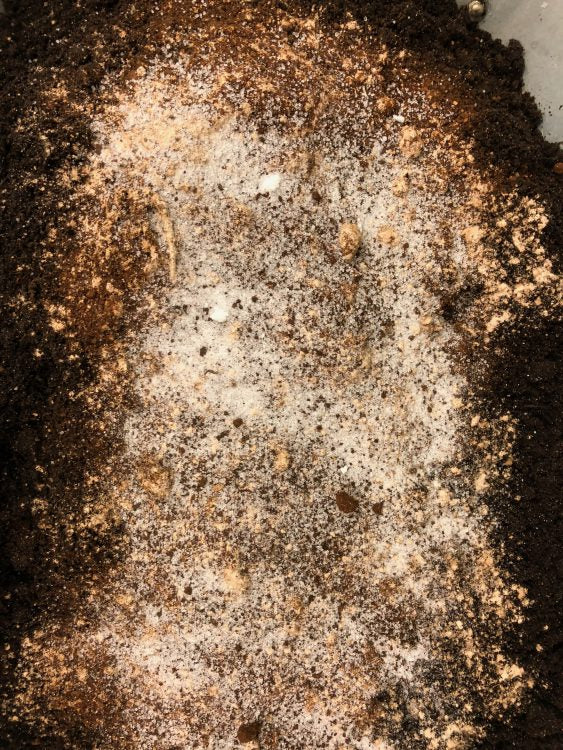Retraining of plants part 2
Posted by REMY EKORNSETER

If you have read the first post about retraining, this is the next one. Now the plants will continue to increase in pot size and this is the last repotting before they go out into the greenhouse or into the final pot. This also applies to tomatoes and cucumbers +++
The first thing I do is add soil, here about 45 litres. The soil I use here is from a local landfill where they grind up organic material and compost it. They add some sand to the soil. I am very happy with peat-free soil. After filling, I dissolve all lumps and make the soil loose and free.

The next step is to add Bat Guano for high phosphorus values (nPk). I use about 2.5 dl on this amount of soil and at the same time add about 100 grams of Multimineral kelp flour.

Then I add a little Nytta Basalt + , about 5-6 tablespoons

After that, I take in about half the amount of bat guano with Parker Neem Cake, about 1.7dl. This is to strengthen the plant's resistance to pests, and to add more nitrogen (Npk)

Then I have in epsom salt.

Put in about 50-100g of Multimineral Taumel and 100g of Volcanic ash!
Then I have a good time with perlite. Since the soil contains quite a lot of sand, I use about 30% perlite to get a light, porous soil that the roots can easily move around in.

Mix well, make sure to get everything up from the bottom and take plenty of time to mix. You will feel the soil become lighter as you mix.

I take a plant and find a two liter one. Carefully I press under the pot and afterwards on the walls and allow the whole plant with root ball to gently slide out.

At the bottom of the 2l pot, I put some fresh soil mix.

Then I put the plant in and fill it with soil around the sides, this is lightly pressed down with the fingers around it so that there are no air spaces, but do not pack too hard. Then I fill up to the brim and pack it lightly.
Then all that remains is to repeat this and water them well when you have finished. This will speed up the plants! So the big question: Why not just buy soil from a nursery or plant centre, isn't that good enough? The answer is simple. After trying most things, everything from cheap euro-price soil, to expensive gardener's soil, it is this soil mix that works best and gives me the best results every season. This soil is a dear place for microorganisms, there is a high proportion of phosphorus which is good for both tomatoes, chillies and cucumbers, there are minerals and organic additives that play on layers of symbiosis in the soil. So that's why I stick to what works. But that doesn't mean I don't continuously try different and new things, but for now this is the best method! Good luck


